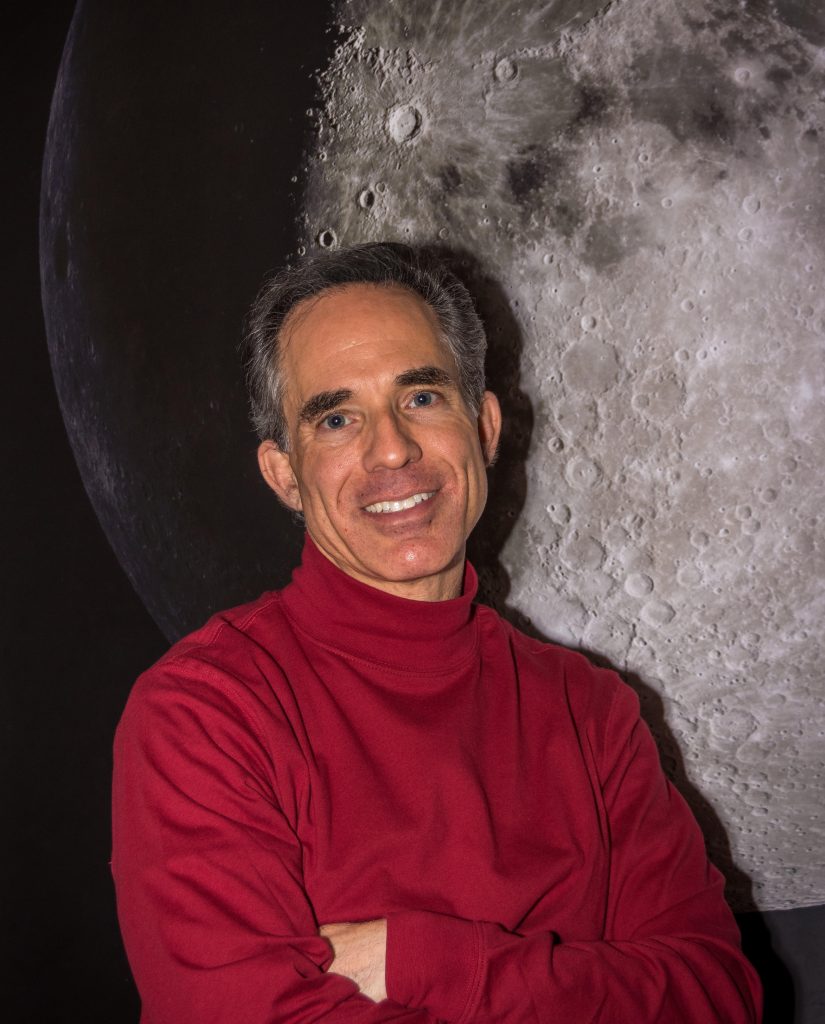By DAVID WARMFLASH, MD
This is part 2 of David Warmlash’s takedown of Robert W. Malone’s appearance (transcript) on the Rogan podcast. Part 1 is here
Menstruation and Fertility
Much more than the line about reproductive damage in the Wisconsin News clip that we used to open the story, Malone used the Rogan interview to dive more deeply into the topic, starting with:
…there’s a huge number of dysmenorrhea and menometrorrhagia…
By that, he meant excessive menstrual cramping and very heavy, often irregular, bleeding, which he followed up with:
…they DENY it…
Judging by other parts of the interview, ‘they’ means government health agencies, big pharma, mainstream media. Thus, it was quite an accusation, given that, months prior to Malone’s talk with Rogan, the National Institutes of Health (NIH) had announced a program to study COVID-19 vaccination effects in pregnant and postpartum women and then announced, very publicly, that it had awarded $1.67 million to five institutions (Boston University, Harvard Medical School, Johns Hopkins University, Michigan State University, and Oregon Health and Science University [OHSU]) to study vaccines and the menstrual cycle.
Rather than bringing up any of that NIH-funded research, however, Malone jumped into a description of haredi rabbis asking him to ‘testify’ at a rabbinical ‘court’ in Brooklyn:
..it turns out that the rabbis in the Hasidic jew community carefully monitor–we don’t need to go into how–the menstrual cycle of the fertile women in their congregations, closely monitor it because there is strict guidance about cleanliness and intercourse and they had a major problem because they these you know these are all 60 plus up to 80 long beards right here that had exquisite understanding about the menstrual cycle in all the women in their congregations and they all knew that these menstrual cycles were being disrupted all the time…
What a load of mishigas.
Basically, Malone is implying that, thanks to the rabbis, we can hear about the problem that authorities ‘deny’. Telling people that you have secret information that their doctors and government don’t want them to have is a telltale sign of pseudoscience. So I hope that the rabbinical court in Borough Park also heard testimony from other people studying menstrual effects of vaccination. Then, the court would have heard about the NIH-funded studies, like the OHSU one that would publish in the journal Obstetrics and Gynecology just weeks after Rogan’s interview of Malone. The study analyzed information on period timing and characteristics, vaccine doses, and other factors from nearly 4,000 women (60% vaccinated, the rest not) reporting through a tracking app.
Results of the study indicate that vaccine jabs do alter the timing of menstruation, but not in a way that should worry the rabbis. Basically, vaccination changed the timing of periods by less than a day out of the month. Exceptions were in women whose two jabs occurred during the same cycle, in which case the period timing could change by up to two days. The women, furthermore, returned to their normal timing within a couple of cycles. There also was an apparent association with heavy menstrual bleeding, but that too returned to normal. None of this should be surprising, since the immune system affects sex hormone physiology, as do other body systems. That’s why various medications also affect menstrual cycles.
But what about Malone’s claims about reproductive damage, affecting future generations? His rationale came when he told Rogan this:
….studies they did do was administer these lipid RNA complexes to rodents and showed the distribution of the synthetic lipid component that’s the fats that package the RNA that let it slip into your cells, it’s a synthetic chemical positively charged molecule, it’s a fat with a charge on the end it goes to the ovary at a very high rate like 11% of the lipids…
What he was describing is a study in which laboratory rodents were exposed to much higher quantities and concentrations of the RNA-containing lipid particles than a human actually receives from an mRNA vaccine and when the rodents were sacrificed, the lipids were identified in the rodent ovaries. Citing laboratory studies in which animals are given excessive amounts of something that activists think is dangerous is a fairly common tactic in many realms, from vaccine opposition to the anti-GMO movement and whatnot. But, subsequent to Malone’s talk with Rogan, researchers from Boston University’s School of Public Health (one of the NIH-funded institutions) published a study examining effects of COVID-19 vaccine jabs, SARS-CoV2 infection, and COVID-19, on 2,126 US and Canadian couples trying to get pregnant. The results showed no interference of vaccination on fertility. Meanwhile, SARS-CoV2 infection, though not affecting female fertility, apparently caused a temporary drop in fertility of infected male partners.
Now, let’s unpack Malone’s claim about being the ‘inventor’ of mRNA vaccine technology
The mRNA vaccine technology I created….
“Malone’s claim about inventing mRNA vaccines rests on one contribution, research that he performed as a graduate student, showing that extrinsic mRNA could be delivered into cultured cells by enclosing the mRNA within a particle made of lipid,” says Offit, referring to the family of chemicals, lipids, that includes familiar substances, such as fats and waxes.
That research, which Malone conducted in the late 1980s, amounted to a proof-of-concept for utilizing mRNA in ways beyond what it has evolved to do.
“People in the 1970s had used mRNA as a basic research tool and had shown that it could go into a cell surrounded by lipid, but Malone was the first to realize the potential of utilizing mRNA as a drug or vaccine,” notes Elie Dolgin PhD. A science journalist who interviewed Malone in mid-2021, just prior to Malone’s rise to public prominence, Dolgin emphasizes that Malone deserves credit for the conceptual leap that he made as a graduate student. That happened at the University of California at San Diego, at the Salk Institute, where Malone was on track to earn a PhD. It continued when he left the PhD program, accepting a Masters of Science, and worked for Vical, a startup company. But then, he left California to resume medical studies at Northwestern, earning his MD in 1991. Subsequently, he trained in pathology, then did a lot of training and work in areas involving viruses, gene therapy, and vaccines. It was brilliant work, but it was in a different direction from the research that numerous others were advancing that would lead ultimately to the mRNA vaccines of today. His pathway would later connect him with DNA vaccines, like the kind that Johnson and Johnson and AstraZeneca make against COVID-19. But his contribution to mRNA vaccine technology really ended when he returned to medical school more than 30 years ago.
Dolgin’s interview of Malone, conducted for a detailed article on mRNA, published later in the year in Nature, took place in May, 2021, just when Malone was beginning to call himself the ‘inventor’ of mRNA vaccination. In researching Malone, however, Dolgin has realized that Malone’s entry into the world of COVID-19 vaccination critics was gradual, as was his evolution to calling himself the ‘inventor’ of mRNA vaccines.
This brings us to Malone’s repurposed role in the pandemic, where Dolgin provides some further insight.
“Only as a result of his appearance on the DarkHorse Podcast, about a month after my first conversation with him, did he begin to gain celebrity status within the anti-vaxx movement and start making his past involvement with mRNA a major talking point,” says Dolgin. “Based on my interview of him and on things that he says on his website, his claim to be the ‘inventor’ seems to rest on the narrowest definition of the word under patent law since his name is on some foundational IP, but not in the broader sense as someone who actually created something that didn’t exist before.”
“Malone was listed, among numerous researchers, on patents belonging to the startup company, Vical,” notes Offit. Notably, those patents figure prominently during the early part of Rogan’s interview of Malone. “But the lipid particle that Malone used was not the type of lipid particle that ultimately proved useful to enclose mRNA of actual vaccines”.
The Real Inventors of mRNA Vaccine Technology
And therein lies the rub. The type of lipid carrier that is actually used to enclose mRNA in vaccines came years later, from other scientists, notably Pieter Cullis, a Canadian biochemist, who could be on the short list for a Nobel Prize. This makes Malone like the electrical researchers of the early 19th century, who got brief flashes of light from wires, showing that electric lighting might be possible in the future. If we then consider Thomas Edison and others who solved a host of technical issues, making electric lighting actually practical and viable, there really are hundreds of people who ushered in the era of mRNA vaccines. Cullis is one of them but enclosing the mRNA in lipid was just one of the major challenges.
“The mRNA itself had to be altered in a major way,” notes Offit, referring to the fact that mRNA in its natural form would provoke an immune response, and not a good immune response, but the kind that would do harm. “This means incorporating nucleoside analogs into the mRNA, building blocks similar to the real RNA building blocks.”
Such a chemical modification, which causes a focused immune response, against the spike protein on the virus, came from more researchers, particularly two that are on the list with Cullis for a potential Nobel Prize: Drew Weissman of the University of Pennsylvania and Katalin Karikó, now of BioNTech (the German company that ultimately partnered with Pfizer to develop the vaccine).
The Infamous Spike Protein
The third obstacle involved the spike protein itself. This is a molecule on the virus that scientists have known for many years because it’s also on the coronaviruses that cause SARS and MERS, coronavirus diseases that broke out earlier this century. The spike protein provokes the immune system, but it also enables the virus to attach to the outside of body cells, and then fuse with the cell membrane and enter the cell. Consequently, scientists honed in early on the spike protein to use as the basis for coronavirus vaccines. The virus can attach to a body cell initially, because of a protein called ACE-2 that sits on the outer-facing surface of many types of body cells. A region of the spike protein sticks to ACE-2, then a different region of the spike protein fuses with the membrane, starting the infection process. Meanwhile, by distracting the ACE-2 from its day job, the virus causes numerous problems in the lungs and throughout the body. Although the vaccine contains a recipe for cells to make spike protein, scientists have modified the vaccine-generated spike protein to be locked into a certain shape. Being locked into this shape, the vaccine-generated spike protein works especially well for the immune system’s target practice, and also cannot fuse with the membrane of another cell the way that spike protein on an actual virus can.
Theoretically, the vaccine-generated spike protein could be able to stick to an ACE-2 molecule, thus preventing that ACE-2 molecule from doing its day job, and during his interview with Rogan, Malone said that the spike protein could break off and enter the circulation. However, we are talking about just tiny amounts of spike protein being produced in the first place after each vaccine jab. Moreover, last July, following similar claims by others about spike protein toxicity, FactCheck.org interviewed a handful of experts. Notably, these experts included University of Texas at Austin structural biologist, Jason McLellan, who has been studying coronavirus spike proteins for many years, and was key to the modification of the spike protein generated by the mRNA vaccines.
“The spike protein is not pathogenic. It is not a toxin,” McLellan emailed to FactCheck.org.
When Science is Not Enough
Because Malone started his career doing really good medical science, but now has emerged as a hero of the anti-vaxx movement, Offit suggests a nickname for Malone. “He is Andrew Wakefield 2.0,” Offit says, referring to the British once academic medical researcher who became such an icon of the anti-vaxx movement that he speaks at anti-vaxx rallies, has directed an anti-vaxx movie, and earned the title former physician on his Wikipedia page and the British magazine The Skeptic named him for the Rusty Razor Award for Pseudoscience and Bad Critical Thinking. This tragic career change began in 1998, when Wakefield published fraudulent research in The Lancet (a top medical journal in the UK), suggesting an association between the combined measles-mumps-rubella vaccine and autism. Over the next several years, the fraudulent paper was exposed along with information showing that Wakefield had an enormous financial conflict of interest with the findings that he’d cooked into his paper. The Lancet retracted the paper in 2010, but anti-vaccine activists continued citing it to justify claims that the MMR vaccine caused autism.
While Robert Malone has expressed no interest in directing films, while he sports a full beard that probably wouldn’t respond well to a rusty razor, and while there is no reason to suspect any financial motives, he may be crossing the Rubicon with statements, such as this that he made in his talk with Rogan:
…our government is out of control on this and they are lawless. They completely disregard bioethics. They completely disregard the Federal common rule. They have broken all the rules that I know of that I’ve been trained on for years and years and years. These mandates of an experimental vaccine are explicitly illegal. They are explicitly inconsistent with the Nuremberg Code. They’re explicitly inconsistent with the Belmont Report…
By saying “an experimental vaccine” in connection with US government policy, Malone is referring to the three vaccines that are being administered in the United States, thus far. He means the Pfizer-BioNTech vaccine, which has full FDA approval for people ages 16 and up, and has emergency use authorization (EUA) for ages 5-15. He means the Moderna vaccine, which has full FDA approval for ages 18 up. And he means the Johnson and Johnson vaccine, which is covered by an EUA for ages 18 and up. Not only are these vaccines not experimental, but they are the most studied vaccines in history. More than 10 billion doses (of the 3 FDA approved vaccines or others approved by other countries) have been administered, with nearly five billion people, more than 60 percent of humanity, having received at least one dose. They are very safe vaccines and extremely effective. They are being administered to save lives, which they are doing, in the midst of the worst pandemic since the influenza pandemic of 1918-1920.
And yet Malone has equated mandates to use these life-saving vaccines to the various unethical human research practices addressed by the Nuremberg Code and the Belmont report. The Belmont Report, published in 1979, lays out guidelines, such as that human research subjects must not be forced to participate and that the benefits of clinical trials must outweigh possible harms. This was the framework for why clinical trials must be stopped early, if a treatment benefit, or a harm, becomes evident earlier than expected. It is ironic that Malone mentioned the infamous Tuskegee Syphilis Study, not with his mention of the Belmont report, but in another part of the discussion, when he was discussing distrust of government research among African Americans. Conducted from 1932 to 1972, the research focused on the effects of untreated syphilis in African American men, mostly poor and all uninformed. Of course, penicillin became widely available early in the study and cures syphilis, completely if it’s given early. Amazingly, penicillin still works against syphilis today! And yet, the Tuskegee study continued all the way to the 1970s. The clinical research on COVID-19 vaccines, in contrast, has been perfectly in line with the Belmont Report. The vaccines have been administered to billions of people worldwide, because it is well established, not only that they are safe, but also that they are effective. Consequently, holding back on using them, stretching out clinical trials with still larger numbers of subjects receiving placebo, instead of the vaccine, would be a violation of the Belmont Report. Back in the 1950s, based on a small study conducted by Jonas Salk with his polio vaccine in Pittsburgh, Salk was convinced it was time to administer the vaccine widely. The March of Dimes, however, which was funding the research wanted to ‘play it safe’ by having a much larger study, with subjects receiving placebo doses, before initiating vaccination on a national scale. From Salk’s perspective, though, this was not playing it safe, but the opposite, and he turned out to be correct. Out of more than 600,000 children in the large trial, about 200,000 received placebo doses. Of this placebo group, 16 died of polio. In the 400,000 person treatment arm, one person became paralyzed, but 34 people in the placebo arm suffered paralysis, and nobody in the treatment group died. People died and were paralyzed because of arguments that a vaccine was too experimental to be administered on a wide scale. So when it comes to the Belmont Report, Malone actually has things rather backwards.
As for the Nuremberg Code of 1947, here, we’re talking about experiments like Dr. Josef Mengele amputating limbs and resecting organs of twins in Auschwitz without anesthesia and killing children to get pathology specimens. We’re talking about immersing concentration camp prisoners in ice cold water to monitor their vital signs as they froze to death. We’re talking about throwing people in decompression chambers and dropping the air pressure rapidly to cause nitrogen to form bubbles in the blood, so that their brains could be dissected to help protect Luftwaffe pilots.
As with any big issue, once you fall into the gutter of comparing health policies with Nazi war crimes, you have indicated the sort of audience that you seek, and you have indicated that you don’t think that you have enough of a case relying just on the science. Even so, considering all that Malone did for medicine and science prior to the pandemic, I don’t think that he intended to gravitate so far into the nutty fringe, so I hope that he knows that there is still time to back out and not be the next Wakefield. I hope that he knows that we in the science community, in the health community, in the community of people who want to make the world a better place, will support him, should he wake up one day, saying “What have I done and what steps must I take to mitigate the damage?”
David Warmflash, MD (@CosmicEvolution) is a medical researcher, astrobiologist, and science communicator. Part 1 of this piece was published on THCB






Leave A Comment